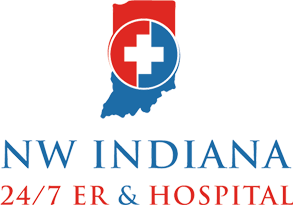Discover how to protect yourself and your loved ones when the heat is unbearable.
During the summer months, making outdoor plans can be challenging. Is it safe to spend hours completing yard work? Is it safe to attend a birthday party in the local park? The potential health risks of overheating are an extreme cause of concern when the temperatures are high. It is important to know the ways to protect yourself and your loved ones from heat-related illnesses when it feels like it’s boiling outside.
What are Heat-Related Illnesses?
Heat-related illnesses occur when the body is not able to properly cool down when exposed to extreme heat. Normally, the body cools itself down by sweating, but in some cases, the body’s temperature rises faster than it can cool down, causing damage to the body’s vital organs. Despite being preventable, around 1,200 people in the United States die annually due to extreme heat.
The most common heat-related medical conditions:
- Heat rash or skin irritation caused by excessive sweat during hot, humid weather.
- Heat cramps are caused by excessive loss of water in the body during strenuous physical activity in extreme heat, causing painful muscle cramps.
- Heat syncope or fainting and dizziness due to dehydration.
- Heat exhaustion is the body’s response to extreme heat, causing headaches, nausea, dizziness, thirst, weakness, extreme sweating, and more.
- Heat stroke is the most serious heat-related illness that may cause permanent and serious damage or even death due to the body’s inability to cool down and control temperature.
Contrary to popular belief, heat-related illnesses can occur indoors and outdoors in any season, depending on the heat conditions. The summer sees an increase in heat-related illnesses due to high temperatures.
Symptoms of Heat-Related Illnesses
Symptoms of heat-related illnesses are similar across different conditions. If you or a loved one experiences the following symptoms while exposed to extreme heat, it is important to seek medical attention, as you may risk serious health complications.
- Heavy sweating
- Muscle cramps
- Nausea
- Dizziness or faint
- Weak pulse
- Headache
- Cold and clammy or red and painful skin
Prevent Heat-Related Illnesses
Heat-related illnesses are preventable. Below are some tips to keep yourself protected during extreme heat.
1. Schedule outdoor activities carefully.
Try to plan outdoor activities for the early morning or evening hours when the weather is a little cooler.
2. Stay hydrated.
Staying properly hydrated is crucial to beating the heat. To do so, it’s important to drink plenty of water and electrolyte-fueled drinks. Don’t wait until you feel thirsty to drink. Prepare your body for extreme heat by consistently drinking plenty of water throughout the day.
3. Know the signs.
Heat-related illnesses are preventable, and with prompt treatment, symptoms can subside quickly. Recognizing the symptoms of heat-related illnesses can help prevent more challenges to health.
4. Find the shade.
If you plan on being outdoors for a long period, find time to rest and rehydrate in shady areas.
5. The inside of the car can become a much hotter temperature than outside.
It’s important to note that when the temperature is hot outside, it is even hotter inside a parked car. Avoid leaving anyone – adults, children, pets, etc. – in a parked car, as this puts them at risk of extreme heat.
6. Dress appropriately.
For extreme heat, wearing lightweight, loose-fitting clothing helps your body stay cool. Don’t forget to wear a hat and sunscreen for extra protection against the sun.
Heat Stroke
Heat stroke is the most dangerous heat-related illness, but quick action can prevent further complications. It occurs when the body’s temperature rises above 103 degrees Fahrenheit and is unable to cool off, leading to various symptoms. High body temperature from a heat stroke can cause serious damage to vital organs such as the brain, heart, kidneys, and muscles, increasing the risk of long-term complications and even death.
If you or someone you love is showing signs of heat stroke, seek medical attention immediately, as every second counts in preventing damage.
If you or a loved one find yourself showing symptoms of heat exhaustion or a heat stroke, NW Indiana ER & Hospital is here to provide 24/7 emergency care to quickly alleviate your symptoms and get your body feeling back to normal. Our expert care team administers individualized treatment, understanding the importance of prompt and accurate care in preventing further complications.
Disclaimer: As a service to our readers, NW Indiana ER & Hospital and Nutex Health state no content on this site, regardless of date, should ever be used as a substitute for direct medical advice from your doctor or other qualified clinician.



0 Comments